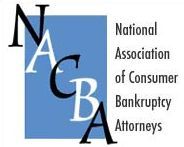Did you receive a Form 1099-C from a former creditor?
There is a bankruptcy exception to the general IRS rule that says if a debt is canceled or forgiven by a creditor, the amount of the canceled or forgiven debt must be included in your gross income on your tax return. Banks know that if they cancel or forgive a customer's debt, they must notify the IRS and issue the customer a tax form reporting the amount of canceled or forgiven debt, Form 1099-C.
There are different types of 1099 forms. They are designed to report some sort of income paid to you, similar to how a W-2 form is used by an employer to show how much an employee was paid during the year. Some examples include 1099's to report interest paid, payments made to self-employed persons for services rendered, and pension income. Form 1099-C differs from those, because the amounts reported on Form 1099-C were not actually "paid" to you. Instead, you were no longer required to repay a debt which you previously owed, and the IRS considers that to be income to you.
The bankruptcy exception applies when the cancellation of the debt takes place in a bankruptcy case. The debt which was discharged is excluded from your income, but you may still receive the 1099-C tax form from the bank. If so, get Form 982 to file with your income tax return. Form 982 describes a number of situations for which canceled or forgiven debt does not have to be included in your gross income on the tax return.
The first category mentioned on Form 982 is "Discharge of indebtedness in a title 11 case." A title 11 case is a bankruptcy case, as the chapter 7 and chapter 13 bankruptcy laws are found in Title 11 of the United States Code.
If you do not file Form 982 with your tax return, the IRS will not know that the debt was canceled in a bankruptcy case, and the IRS will look for the "income," shown on the 1099-C form reported to the IRS by the bank, to be included in your income. If you have not filed form 982, the IRS may "correct" your return to add that amount to your income, and to increase your tax liability from what was shown on your tax return. It is far easier to include Form 982 with your tax return than to follow up with the IRS after it has changed your return, trying to get the IRS to remove that 1099-C income.
DISCLAIMER: The information on this page is not intended to be tax advice from Seelinger Law, but instead is a general discussion of how this tax topic relates to bankruptcy discharges. Do not rely on this information as tax advice. Your specific circumstances and the manner in which a debt was canceled or forgiven must be carefully considered to determine whether the bankruptcy discharge exception applies to you.
Read the instructions for Form 982, and consult a qualified tax preparer or accountant to make sure your debt cancelation or forgiveness may be excluded from your gross income.

